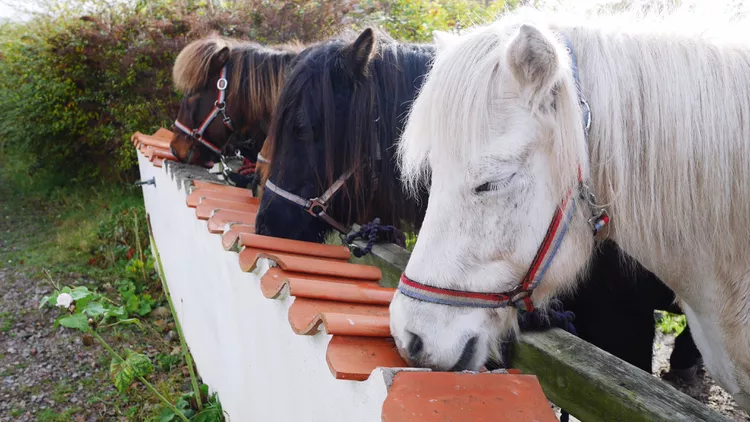
At its core, horses should consume forage or roughage as a major source of nutrition. Hay alone may not meet their requirements so grains and concentrates are added for additional minerals and calories. Below you will find various roughage, feeds and concentrates that make up an “complete diet.”
Green grass provides an economical form of roughage. However, it must be regularly monitored to ensure pasture is free from poisonous plants or debris that could harm horses. Furthermore, fresh green grass contains easily digestible sugars that may contribute to obesity in some horses; in order to prevent metabolic disease and metabolic issues. Furthermore, in seasonal climates pasture may not provide enough nutrition in wintertime therefore supplementation may be required during those colder periods.
Hay is dried and baled grass (such as Timothy, Bermuda grass or orchard grass) or alfalfa that has been dried into bales. While no perfect hay exists; horses prone to obesity require less nutritious varieties while others might benefit from ones rich in proteins or easily digestible carbohydrates. Timothy, orchard, oat and Bermuda grass hays all boast high fiber contents while being lower in energy and protein than alfalfa hay. Hay can either be stored in square or round bales with square bales being divided up into individual partitions known as “flakes”. Weighting a sample flake from each new batch will provide you with an idea of the quantity required; flake weight can differ significantly between flakes and bales. Round bales may be cheaper but should be closely examined for mold or wetness as this could host botulism toxins that pose potential threats to horse health. Ultimately, quality hay that includes minimal dust levels and no mold is key to horse welfare.
Hay and alfalfa both come in pelleted or cubed form for horses with poor dentition as these feeds have already been broken into small pieces before being made into pellets or cubes. It may be easier for horses with poor dentition to consume these forms since roughage has already been broken down to create pellets or cubes; however, it’s still very important that hay cubes be soaked for at least 10 minutes in water prior to breaking them up manually as these cubes could cause obstruction of the esophageal tract or choke; horses with airway diseases could benefit from receiving these forms as dust production can be significantly reduced when feeding soaked feeds such as cubes or pellets soaked feeds can reduce airway inflammation.





